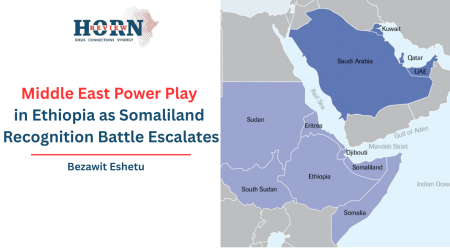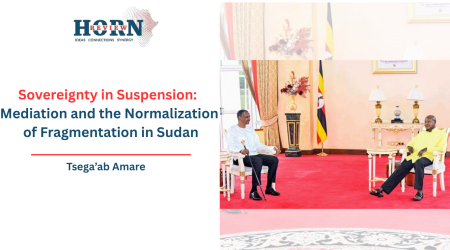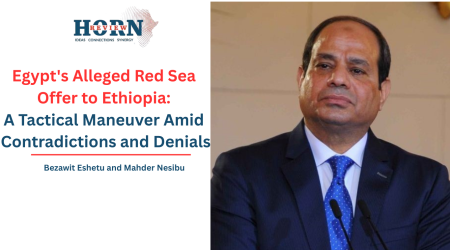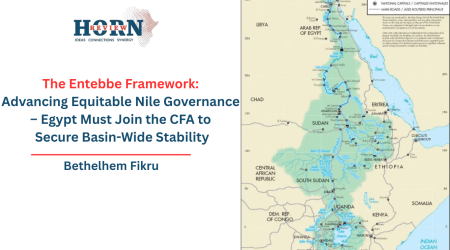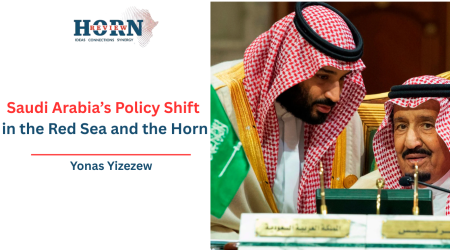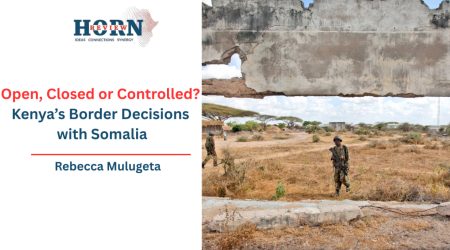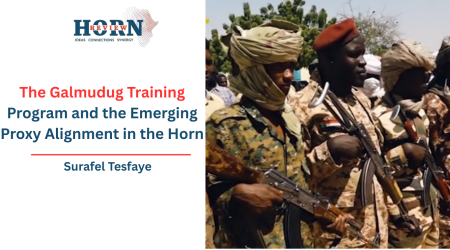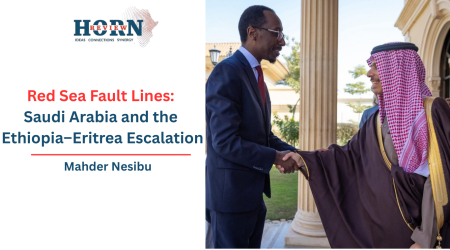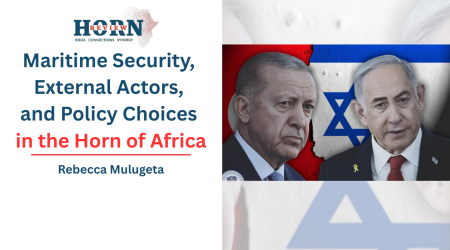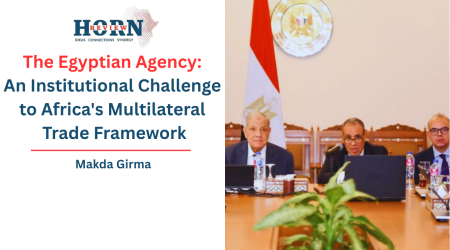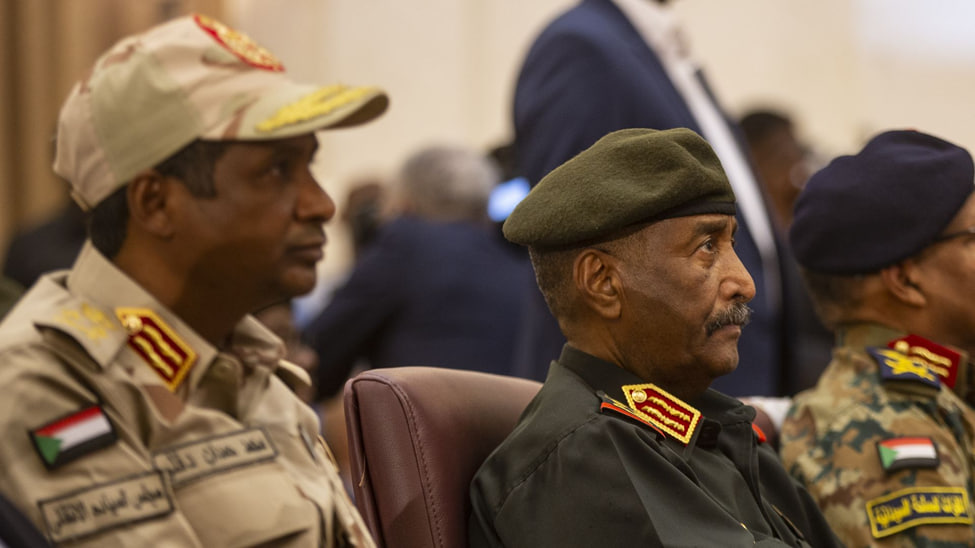
15
Aug
Gold, Guns, and Foreign Patrons: The Atlantic’s Take on Sudan’s “Nihilistic” War
A Reading of Anne Applebaum’s Article for The Atlantic
Anne Applebaum’s recent Atlantic essay, describing Sudan’s civil war as “the most nihilistic conflict on earth,” captures a reality that is both immediate and profoundly enduring. The violence consuming Sudan is stripped of ideology, national liberation narratives, and competing visions of governance. It is a conflict devoid of political substance, where both the Sudanese Armed Forces (SAF) and the Rapid Support Forces (RSF) operate in a governance vacuum, driven above all by the quest for resource control and the preservation of patronage networks. Territorial gains function as instruments for looting, gold extraction, and securing foreign sponsorship, ends pursued for their own sake rather than as stages toward state-building.
This absence of political vision has given rise to a war defined by transactions rather than ideals. Its logic is less about the contest for governance than the monetisation of violence itself. The scale of destruction is measured in more than ruined infrastructure; it extends to the systematic dismantling of Sudan’s institutional and social foundations. Applebaum’s observation is stark: universities stand shuttered, economic activity has ceased, and entire futures lie foreclosed.
Sudan’s war is unusually internationalised. Its prominence owes little to sustained diplomatic engagement or a prioritisation of peace, and far more to the density of external actors pursuing narrowly defined strategic or economic agendas. Turkey, Egypt, Saudi Arabia, the United Arab Emirates, Qatar, Russia, Iran, and even Ukraine converge in Sudan, each with distinct agendas.
For the UAE, Sudan’s gold industry represents a commercial windfall and the RSF a lever for projecting influence in the region. Egypt’s interests are bound to the SAF’s regime stability and Nile Basin politics. Turkey looks to the Red Sea for access and positioning, while Saudi Arabia sees Sudan through the prism of its broader regional hierarchy. Russia moves opportunistically through gold and arms networks, often channelling influence via Wagner-linked structures. Ukraine’s involvement extends its confrontation with Russia onto African terrain. Iran’s calculus includes regaining entry into African arms markets and expanding strategic depth.
This configuration bears little resemblance to the bipolar proxy rivalries of the Cold War or the interventionist consensus of the post-Cold War liberal order. Instead, it reflects a multipolar arena in which middle powers operate on their own terms, producing a volatile equilibrium that entrenches rather than resolves the conflict.
Sudan stands as evidence of the erosion of the “Responsibility to Protect” (R2P) doctrine, once central to Western-led humanitarian engagement. The Atlantic’s conclusion is stark: “The liberal world order has already ended in Sudan, and there isn’t anything to replace it.”
The United States, once a central diplomatic actor in Sudan, is now politically and structurally disengaged. Institutional expertise on Africa has diminished, bipartisan consensus on aid has frayed, and policy attention has been diverted toward Ukraine and Gaza, relegating Sudan to the periphery of U.S. priorities. Western humanitarian involvement has shifted from active diplomacy to fragmented emergency relief which stands underfunded, manipulated by conflict actors, and constrained by a war economy that turns aid into a bargaining chip. UN agencies, deprived of political leverage, operate in an environment designed to frustrate their effectiveness.
The toll is staggering. “Half the population, nearly 25 million people, is expected to go hungry this year. Hundreds of thousands of people are directly threatened with starvation. More than 17 million children, out of 19 million, are not in school. A cholera epidemic rages. Malaria is endemic.” This is a humanitarian catastrophe bound up with the collapse of societal infrastructure, in which education, healthcare, and economic life have all been dismantled.
With state institutions absent and international actors ineffective, survival increasingly rests on grassroots initiatives such as the Emergency Response Rooms, rooted in Sudanese traditions of mutual assistance (nafeer and takiya). These networks act as parallel civic institutions, offering a fragile counterweight to the prevailing chaos. Yet their future is precarious in a war economy that rewards militarisation over civic stability.
Gold lies at the centre of the war’s financial architecture. Both the SAF and RSF fund their operations through illicit exports, often channelled through middle-power states. These revenues integrate Sudan into global illicit finance systems, ensuring that the resource sustains conflict rather than reconstruction. Control of gold is therefore an economic prize and a strategic necessity for both domestic and external actors.
For Ethiopia, Sudan’s slide into anarchic violence brings both immediate and long-term dangers. Refugee inflows add pressure to an already fragile domestic environment. More strategically, the conflict’s foreign patronage systems, especially the involvement of Egypt and the UAE, intersect with Ethiopia’s own Red Sea access issues and Nile diplomacy.
Should Sudan crystallise into a warlord-patronage order backed by middle powers, it would become a permanent source of instability in the Horn of Africa. Ethiopian policymakers must therefore prepare for a drawn-out conflict, one that merges humanitarian collapse with geopolitical rivalry.
Previous U.S. administrations, Republican and Democratic alike, invested in sustained Sudan engagement, often driven by civil society advocacy and humanitarian imperatives. Under Donald Trump, the R2P doctrine is formally abandoned, though sporadic peace efforts persisted elsewhere. Sudan, however, remains off the agenda.
The result is a vacuum of strategic influence. Gulf states, Russia, and other actors have filled the gap, not with stabilising diplomacy, but with transactional, militarised interventions. For the Horn of Africa, the consequence is the acceleration of politics defined by fragmentation and militarisation.
Applebaum’s account leaves a narrow margin for optimism. The continued activity of local civic networks shows that Sudanese society retains some capacity for self-organisation despite systemic collapse. Whether these fragile structures can serve as a foundation for a post-war settlement will depend on both internal resilience and the willingness of external actors to engage constructively.
For Ethiopia and the wider Horn, Sudan’s trajectory is a warning. It signals a phase in which conflicts can be simultaneously saturated with foreign actors and abandoned to disorder, globally entangled yet peace wise neglected. Left unchecked, the logic of “nihilism” that now defines Sudan could spread, shaping the region’s security environment for years to come.
By Mahder Nesibu, Researcher, Horn Review
Anne Applebaum’s article: This Is What the End of the Liberal World Order Looks Like – The Atlantic

